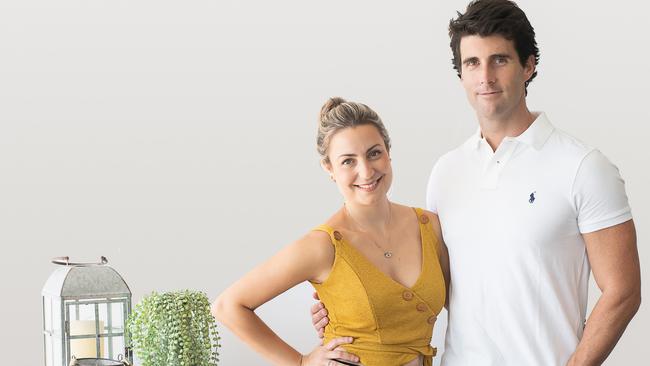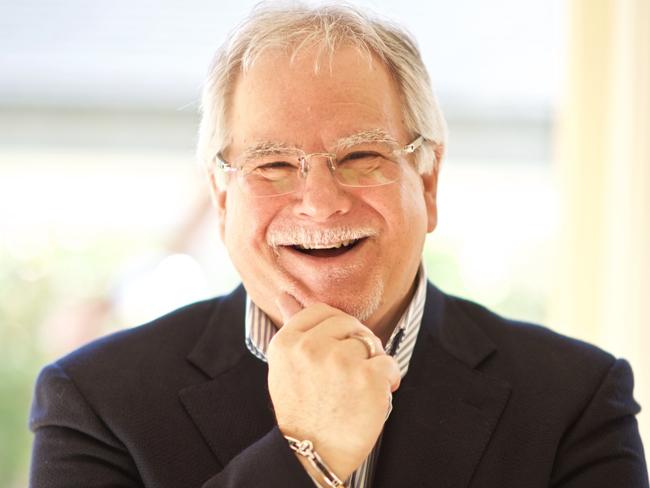Real estate investment’s next step: commercial property success
Investing in shops, factories, warehouses and offices can be a great strategy, even though some have struggled during COVID.
SmartDaily
Don't miss out on the headlines from SmartDaily. Followed categories will be added to My News.
Real estate investors are eyeing commercial properties as an alternative to sizzling residential markets and are being urged to understand the pandemic’s impacts.
Offices and small retail shops have been hit hard during COVID-19 while industrial properties such as logistics and warehouses are in demand and tipped by real estate specialists to continue strongly post-COVID.
While some commercial properties cost many millions of dollars, small offices, factory units and warehouses often sell for less than $200,000.
Property investment firm Rethink Investing’s founders, Scott and Mina O’Neill, say now is a good time to invest in commercial real estate thanks to record low interest rates and much stronger rental yields than those being achieved from residential properties.
HIGHER INCOME
O’Neill says he personally loves commercial property because “you can still find properties with yields of 6-8 per cent net, and the interest rate for lending can be as low as 2.5 per cent”.
That’s impressive positive cash flow, and O’Neill says confidence in the property market is hitting new highs.

“I like small industrial properties in well-located areas, and medical assets,” he says.
“Some retail properties are also strong if they are not exposed to tourism or the areas hit by lower foot traffic volumes.”
The O’Neills’ new book, Rethink Property Investing, says myths preventing people from investing in commercial real estate include perceptions of low capital growth, that it’s only for the wealthy and that there are long vacancies.
“Getting the due diligence right will ensure the property won’t stay vacant for long,” they say in their book.
O’Neill says commercial property newcomers should learn about the asset class and different market cycles, research markets with the tightest vacancy rates, have a deposit of 30 per cent of the purchase price, and have a good team around them including an accountant, commercial mortgage broker, solicitor and potentially a buyer’s agent.
“At least $100,000 will be enough to cover a 30 per cent deposit plus purchasing costs for an entry level $300,000 asset,” he says.
“Having said that, I would normally recommend having at least $150,000 as a deposit to consider investing in commercial property.”
As with residential real estate, a deposit does not have to be cash – it can be equity built up in other investment properties.
HOW TO LOWER RISK
Metropole Property CEO Michael Yardney says COVID-19 significantly affected sectors of the commercial property market.
“In particular retail and office space will be affected in the short-term, but warehousing space is in higher demand than ever,” he says.

Yardney says new investors can lower their risks by buying a property that is already leased long-term to a good tenant.
“Always invest in prime retail, commercial or industrial locations — high demand positions that are popular with tenants and purchasers,” he says.
“Consider visibility, accessibility to public transport and parking.”
Yardney says recently-built commercial properties will generally appeal more to tenants and require less renovation.
“They will also have higher depreciation benefits,” he says.
HAVE A BACKUP PLAN
Real estate author, investor and university lecturer Peter Koulizos says investors should be flexible, “have some cash in the bank as a plan B”, and understand that higher rental returns from commercial properties come with higher risk.
“The main risk is vacancy,” he says.
“If you lose a tenant from a residential property you will probably find one quickly, but if you lose a tenant from your warehouse or shop it may be months before you find another.
“Make sure you buy in a good location. If you are buying a shop, make sure it’s in a high traffic area for both pedestrians and/or vehicles.”
Koulizos says logistics and warehouse properties will do well after COVID supply chain crunches prompted many business to abandon just-in-time delivery schedules and store more stuff onsite.
“We are going from just in time to just in case,” he says.
Commercial property offers diversification beyond traditional houses but “if you want real diversification, get yourself a REIT”, Koulizos says.
Real estate investment trusts (REITs) are listed on the stock exchange and own large commercial properties including office towers, manufacturing sites and even Bunnings warehouses.
“Educate yourself – there are books about commercial property – and familiarise yourself with commercial leases because they are different to residential leases,” Koulizos says.
FOR AND AGAINST
ADVANTAGES:
• Commercial tenants pay outgoings such as rates, taxes and insurance.
• Longer leases of 3-5 years versus 6-12 months for residential.
• Higher rental yields of 5-10 per cent net, versus 3-4 per cent growth for residential.
• It provides diversification from residential property.
DISADVANTAGES
• Commercial property usually costs more than residential.
• Risk of a long-term vacancy is higher.
• Lenders usually require at least a 30 per cent deposit.
• Leases are complex and often require help from a solicitor.





